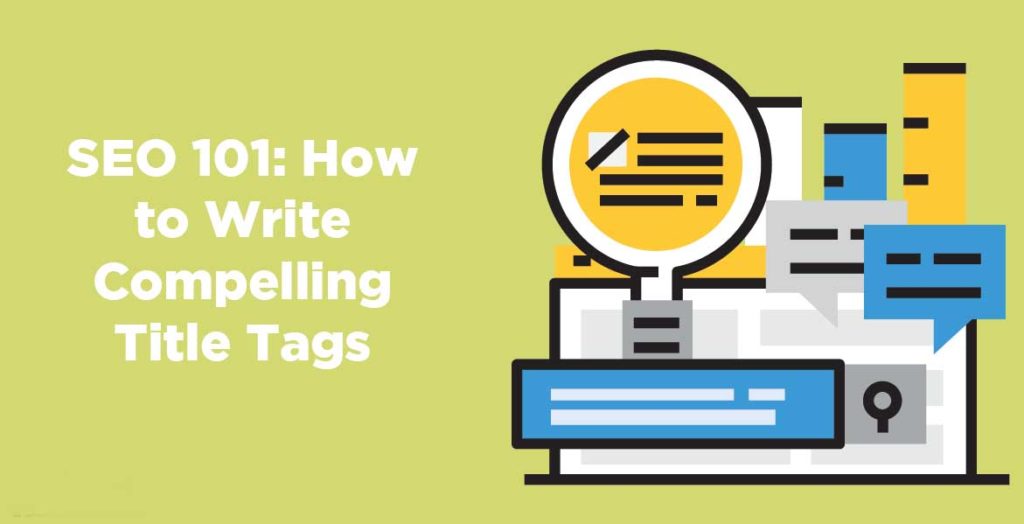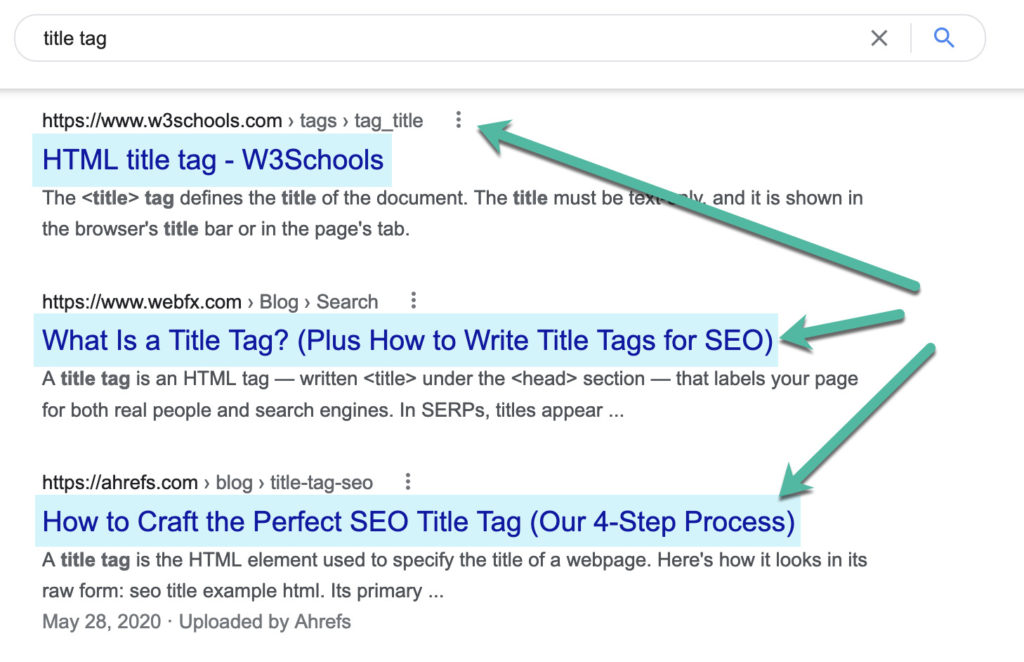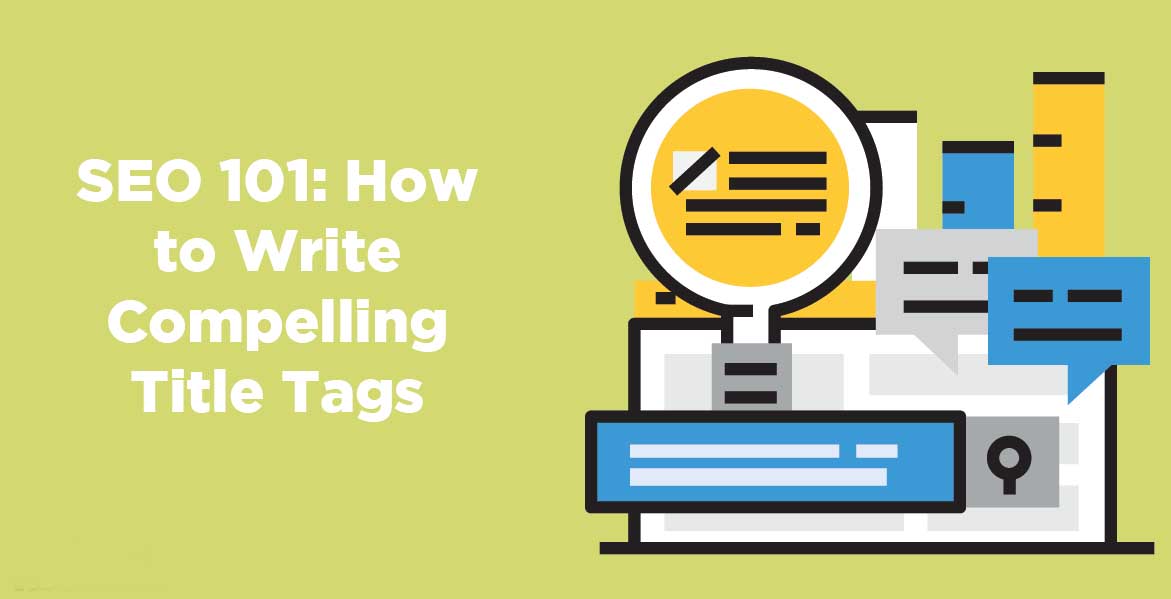SEO title tags: What are they and how to write them?
When it comes to optimizing your website for SEO, creating effective title tags is an essential part of the process. Title tags are snippets of text that appear in search engine results and inform users about what your page is about. A well-crafted title tag will help you rank higher on SERPs (Search Engine Results Pages) and generate more organic traffic. It’s also important to note that title tags are not just a ranking factor, but also an essential element of your website’s UX.
To create effective SEO title tags, you’ll need to understand how search engines read them and what keywords they prioritize. Title tags should be short, concise, and closely related to the content on the page. They should also include your targeted keywords to ensure that the page is found in searches relevant to those terms. Additionally, title tags should be unique and accurately reflect the content, so it’s important not to create duplicate tags for multiple pages.

If you’re looking for more tips on optimizing title tags for SEO, Moz’s guide is a great resource. It covers everything from keyword research to writing effective titles and descriptions. Additionally, Yoast SEO is a great plugin for WordPress that can help you automatically optimize title tags for your pages. With the right tools and strategies in place, you’ll be able to create well-optimized title tags that will help drive organic traffic to your website.
It’s also important to keep in mind that search engine algorithms are constantly changing, so you’ll need to stay up-to-date on the latest SEO best practices and adjust your titles accordingly. Overall, title tags are an essential element of SEO and should not be overlooked when optimizing your website for search engines. With a bit of knowledge and some experimentation, you can create effective tags that will help drive organic traffic to your page.
What are title tags?

Title tags are HTML elements that appear at the top of a webpage and describe its content. They tell search engines what your page is about, which helps them determine where to rank it in their search results. Title tags also provide users with information about what the page is about, allowing them to make an informed decision on whether or not to click through to it from SERPs. Additionally, title tags are one of the first things search engines look at when crawling a page, so it’s important to make sure they accurately reflect your content.
Why are title tags important to SEO?

Title tags are important to SEO because they help search engines understand what your page is about and where to rank it in their results. By including your targeted keywords in the title tag, you can ensure that your page shows up for relevant searches. Additionally, title tags provide users with valuable information about what the page contains, which helps them decide whether or not to click on it from the SERPs. When crafted correctly, title tags can be an essential part of helping your page rank higher in search engine results and drive more organic traffic to your website.
Tips for writing effective SEO title tags
To create effective SEO title tags, there are a few key tips you should keep in mind. First, make sure that the tag accurately reflects the content on the page. You should also include your targeted keywords in the title to ensure that search engines can easily identify what it’s about and prioritize it for relevant searches. Additionally, make sure your tags are concise and straight to the point – they should be no longer than 60 characters so they don’t get cut off in SERPs. Finally, avoid creating duplicate tags for multiple pages, as this can hurt your SEO efforts.
How do you write effective SEO title tags?
Writing effective SEO title tags is all about understanding what search engines prioritize and crafting titles that are both descriptive and contain your targeted keywords. First, you’ll need to do some keyword research to determine which terms users are most likely searching for when looking for content related to yours. Once you have a list of potential keywords, you can start crafting your titles so that they are descriptive and include those terms. Additionally, make sure to keep your title tags short – no more than 60 characters – so they don’t get cut off in SERPs.
Craft unique title tags for each page
When it comes to optimizing title tags for SEO, it’s important to make sure each one is unique and accurately reflects the content on the page.
Make your title tags an appropriate length
To ensure that your title tags appear correctly in search engine results, make sure to keep them under 60 characters. Anything longer than that will get cut off, which could lead to confusion for users and potentially hurt your SEO efforts.
Test different titles to see what works best
When it comes to optimizing title tags, it’s important to experiment with different variations to see which ones are most effective. Try A/B testing different titles to see which perform better in terms of organic click-through rate and SERP rankings. This will give you a good idea of what works best for your website and help you craft more effective titles moving forward.
Use framing words
Framing words are phrases like “help”, “guide”, and “tips” that you can use to make your titles more engaging. Including these words in your title tags will help them stand out in SERPs and encourage users to click through to your page.
Include a brand name when content is brand-specific
If you’re creating content that is specific to your brand, make sure to include it in the title tag. Doing so will help search engines understand what the page is about and rank it appropriately in their results. Additionally, including your brand name in titles can help build recognition among users.
Start generating site traffic with well-crafted title tags
By following these tips, you can create effective SEO title tags that will help drive more organic traffic to your website. With well-crafted titles and the right keywords in place, search engines will be able to prioritize your pages over competitors’ in their results, helping you generate more site traffic and establish yourself as an authority in your niche.


